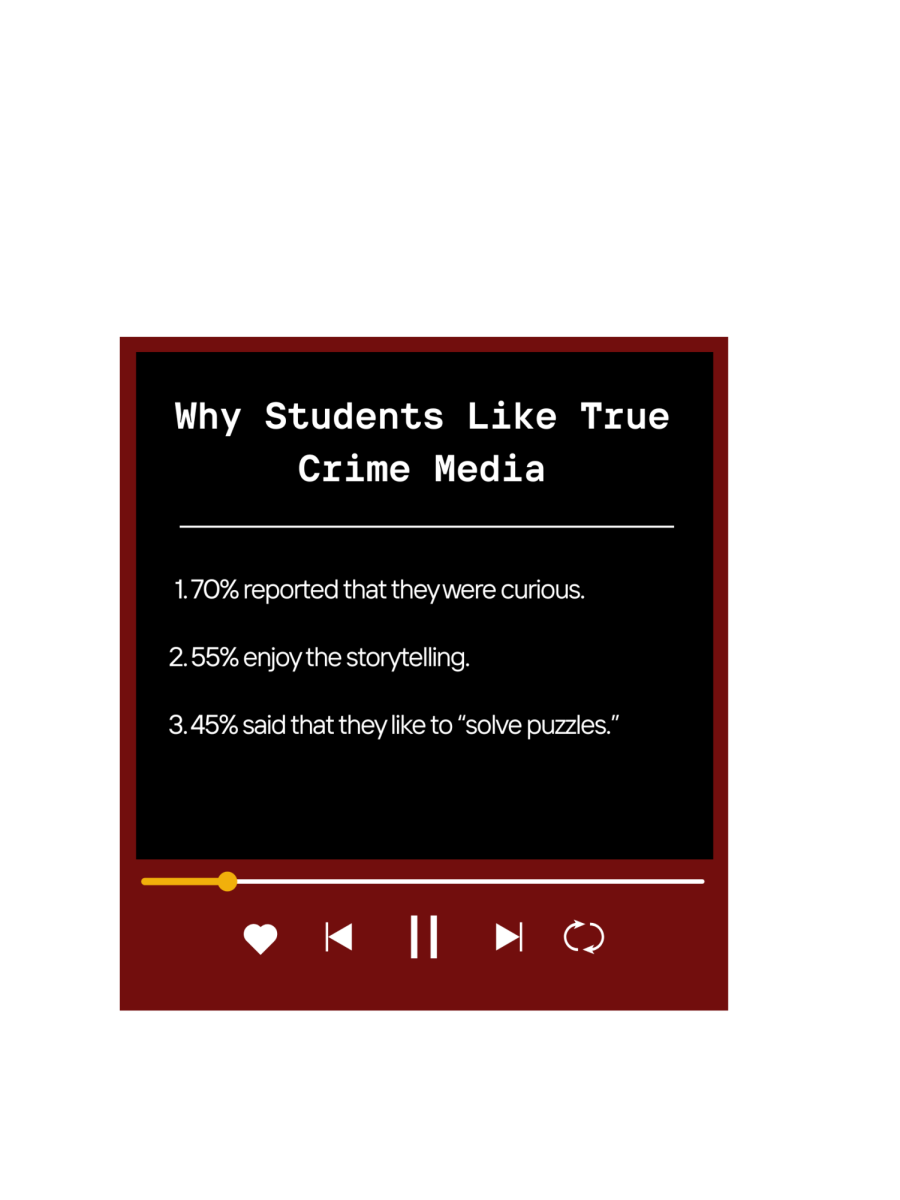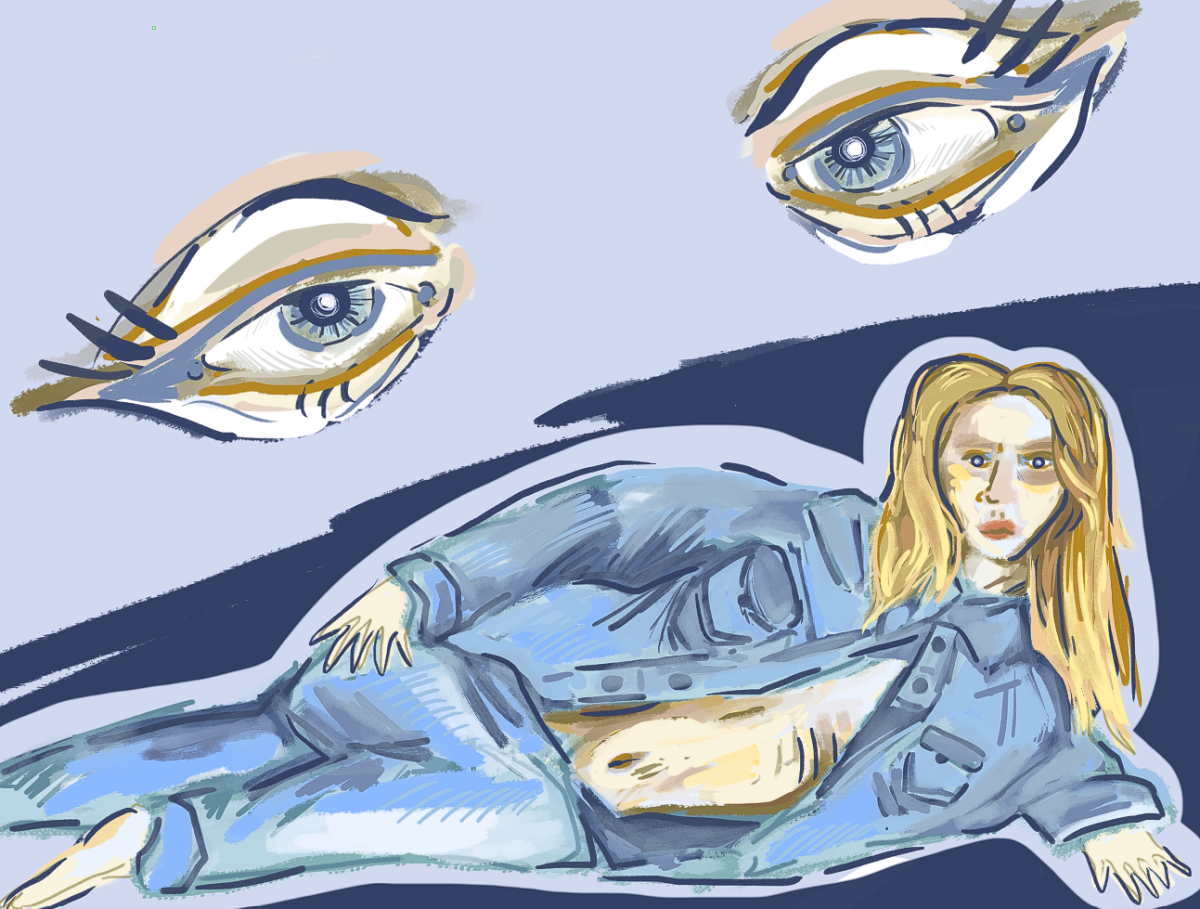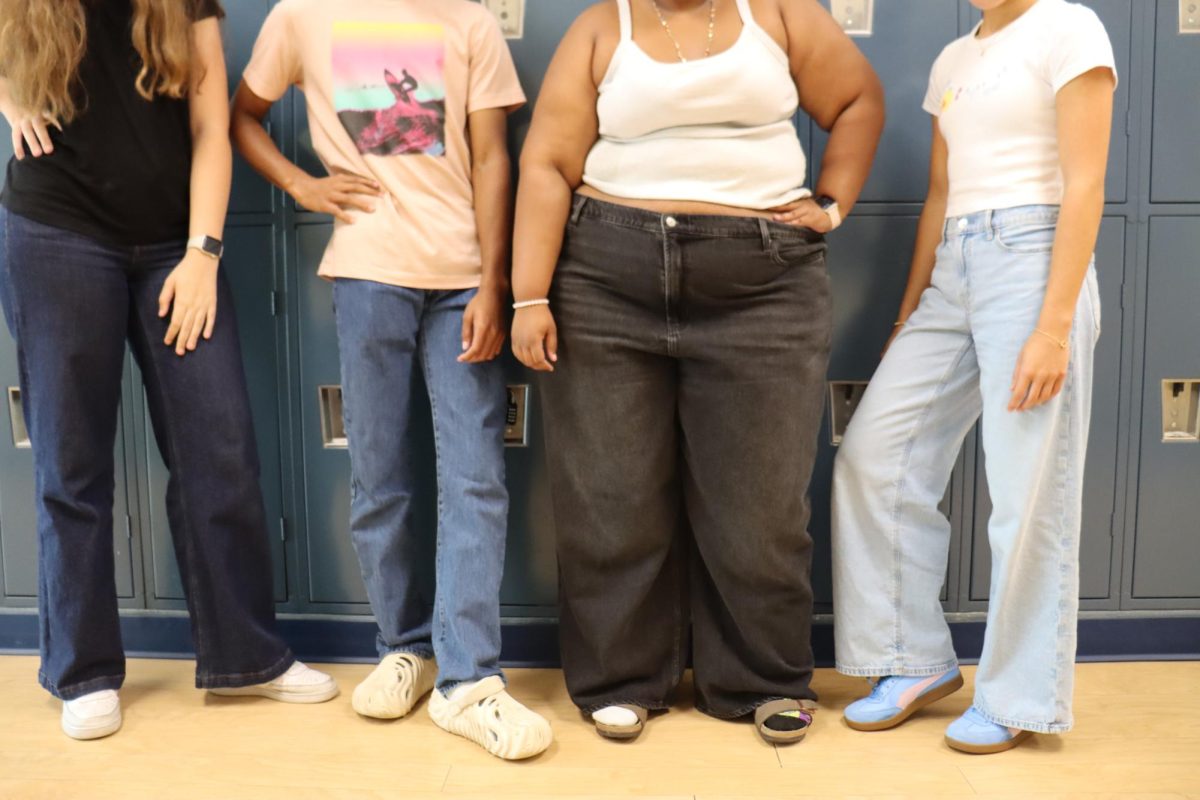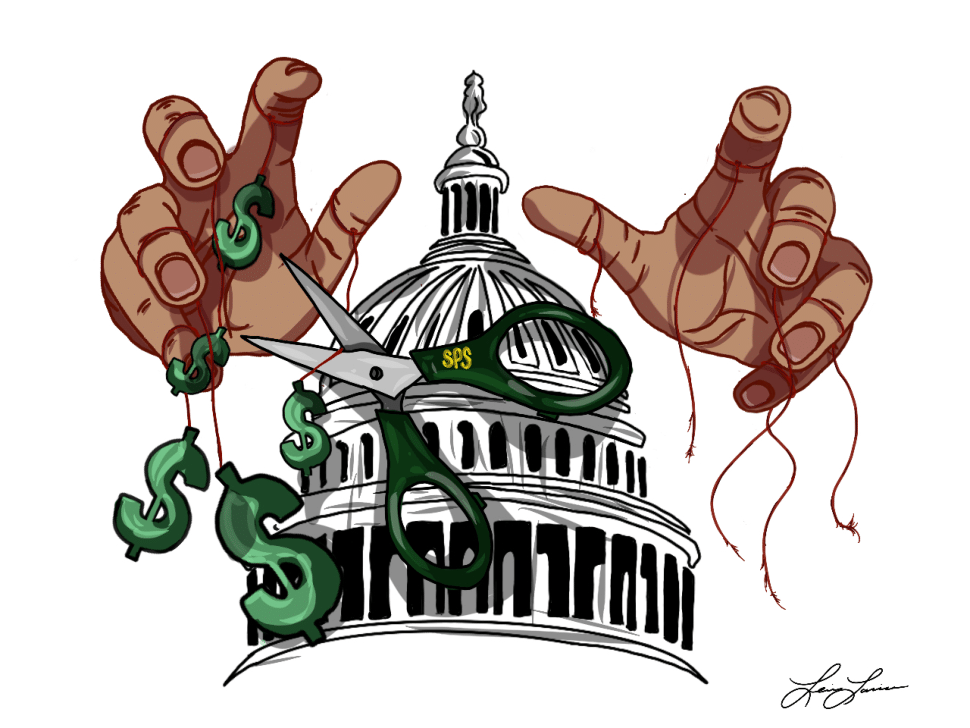The camera pans from actress Sydney Sweeney’s bare feet up to her waist as she scoots up on the sofa.
“Genes are passed down from parents to offspring.”
The shot continues as she fiddles with the rivet of her jeans.
“Often determining traits like hair color, personality and even eye color.”
The camera halts at Sweeney’s face in the main shot.
“My jeans are blue.”
These are the infamous last words of Sweeney before her career shattered into pieces.
This summer, Sweeney collaborated with the clothing retailer American Eagle to promote their new women’s jeans campaign. The series of 20-30 second ads, released on July 23, 2025, quickly became a topic of discussion on social media for what some call racist undertones.
The second ad of the series, along with the tagline of the campaign, “Sydney Sweeney has great jeans,” left a bad taste in some people’s mouths. The constant mention of “jeans” in correlation to Sweeney’s appearance led people on the internet to believe that the ad wasn’t just talking about the clothing.
“I think it sounded way too implied. They mentioned it too many times for it just to be, ‘Oh, she’s wearing good jeans.’ Once she was talking about traits and stuff, and how it’s passed down, it just kind of became obvious,” sophomore Olivia Manfrey said.
Genetics, often mentioned only in Biology classrooms, was highlighted in the campaign’s tagline, and the rationale for such a tactic has been widely disputed.
Some felt like the ad spoke of genetics to appeal to Sweeney’s brand, while others thought that she was promoting white supremacy, going as far as calling the ad Nazi propaganda.
“They had a blonde-haired, blue-eyed white woman sit in front of a camera and play with the words Jean with a ‘J’ and genes with a ‘G,’ and then said, ‘Sydney Sweeney has great genes,’ and y’all don’t see nothing wrong with that? There’s this guy in history, who used that same ideology to unalive groups of people, stating that people with that genetic makeup were superior. What’s his name again? Hitler!” content creator Dwight Thomas said.
The ideology Thomas alluded to — eugenics, or the idea that humans can improve through manipulating the gene pool – was used by Nazis to justify their extermination of the Jewish race for the absence of Aryan traits: blonde hair and blue eyes.
When the ad states that Sweeney has good “jeans” after listing genetic traits commonly found in white individuals, some people assumed that the intended message was that white people’s genes were superior to those of others.
However, others found the eugenics assumption a reach. “I think that’s too far. […] There’s just as much danger in making a sweeping statement like that as there is the other way around, so I don’t think that’s a fair assumption in any way,” US Social Studies Department Chair and GSI Director Kayla Brazee said.
Regardless of the ad’s true intentions, people thought American Eagle should have been more aware.
“It is 2025,” Brazee said. “I was disappointed, because for me as a woman, I kept thinking to myself, ‘At what point are we going to get past using body parts to show off things?’ These are the same types of messages, the same sexualization of women, [and] it felt like we were stagnated.”
With cancel culture increasing in popularity, companies need to consider carefully what they are promoting and be aware of how it will be received.
“I think it [cancel culture] has just gotten so bad, to where even if you were to go on social media and say one thing about something you like, then all of a sudden you love Nazis and you want a certain minority to die or something,” senior Mila Bianco said.
Manfrey had her own take on the matter. “I think some people just [overlook] the fact that things are incredibly offensive, and just because they don’t find offense doesn’t mean other people don’t,” Manfrey said. “I think some things are worth canceling someone for, but other things aren’t. It just depends on the severity.”


































![Thespians pose on a staircase at the District IV Thespian Festival. [Front to back] Luca Baker, Maddison Cirino, Tanyiah Ellison, Alex Lewis, Summer Farkas, Jill Marcus, Ella Mathews, Sanjay Sinha, Isabella Jank, Sofia Lee, Boston Littlepage-Santana, Sally Keane, Tyler Biggar, Tanner Johnson, Jasper Hallock-Wishner, Remy de Paris, Alex Jank, Kaelie Dieter, and Daniel Cooper. Photo by Michael McCarthy.](https://spschronicle.org/wp-content/uploads/2024/12/image1-900x1200.jpg)









